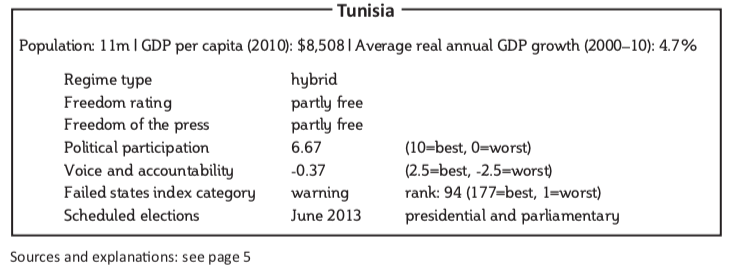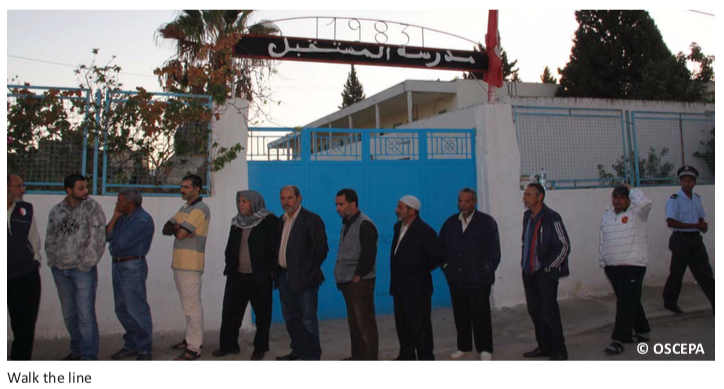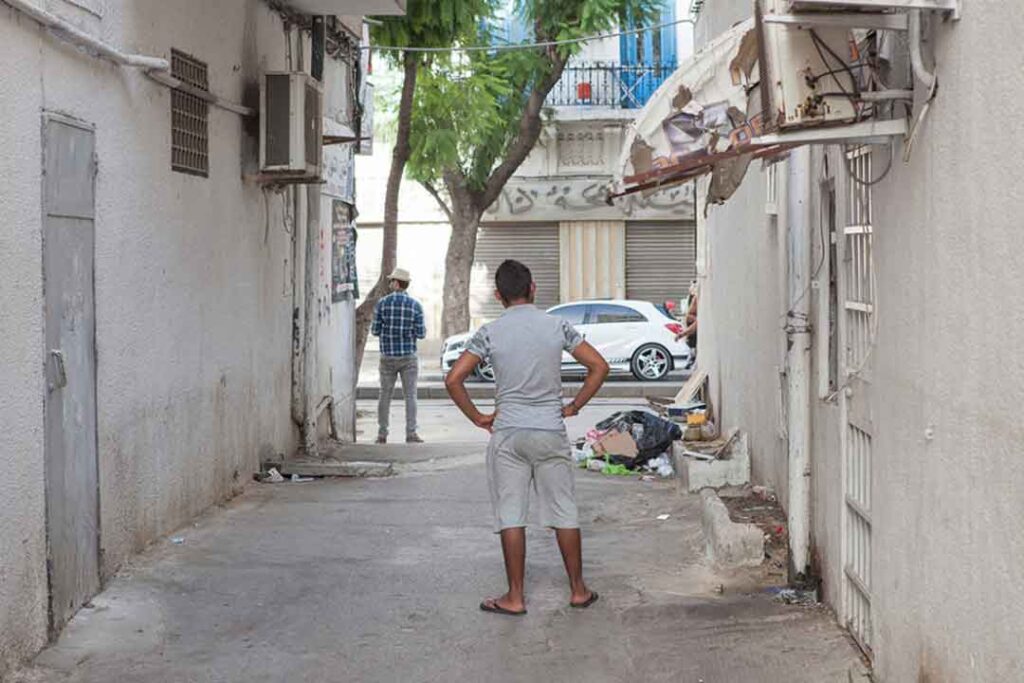Tunisia’s post-revolutionary ruling party juggles sharia and secularism.
by Farida Ayari
In late October clashes between Salafist protesters and security forces in Tunis left one protester dead and three security officers seriously injured. Since then, clashes have continued and soldiers have been deployed to keep the peace in Tunisia’s capital.
The Arab Spring began in 2010 and led to the toppling of dictator Zine el- Abidine Ben Ali in January 2011. This revolution kindled a debate around the role of religion in government, which has divided Tunisian society.
State-imposed secularism and modernisation since independence in 1956 led many to view Tunisia as irreversibly modern and open to liberal democratic values. Under Mr Ben Ali, Islamic parties were excluded from politics by law. One of the major revelations of the Tunisian revolution was the conservatism of Tunisian society.
According to Hammi Hammami, a long-time opponent of the previous regime, the revolution “was about modern values” and its slogans were “freedom, jobs and dignity”.
But the emphasis of the revolution shifted during the election campaign for the Constituent National Assembly (ANC) in 2011. With the dawn of democratic pluralism, Islamic parties were given a voice in politics. Under the influence of the moderate Islamic party Nahda, banned under Mr Ben Ali, identity has dominated politics in post- revolution Tunisia, Mr Hammami said. This has sparked fears that Islam will come to dictate political life and undermine democracy.
In its campaign, Nahda reassured Tunisians that it would respect liberal democratic values and not impose a strict Muslim moral code which would ban alcohol and force women to wear veils. The party won 41%, or 89 of 217 seats, in the assembly in the 2011 election. But with just over 50% of the eligible population voting, Nahda garnered only 17% of eligible votes.
To govern, Nahda entered into an alliance with two secular parties, the Congress for the Republic (CPR), which got 14% of seats in the ANC, and the Democratic Forum for Labour and Liberties, which got 10%. In December 2011, the assembly elected a president to serve until a new constitution is passed and elections are held in 2013.

Nahda’s victory led many to fear that Tunisia’s secular tradition would become a thing of the past. Indeed, it was not long before its representatives in the ANC proposed a constitution that would enshrine sharia law and compromise the rights of women, stressing women were “complementary to men”. But after pressure from civil society, Nahda eventually backed off from those positions. The constitutional draft does not mention sharia and endorses gender equality.
The emergence of multiparty politics in Tunisia also revealed the strength of the Salafists, who espouse a puritanical form of Islam practised under the Prophet Muhammad, uncomplicated by the influences of modernisation that have since shaped the practice of the religion. With this agenda, they have been staging protests demanding the imposition of sharia law in Tunisia, often clashing with security forces. They have also assaulted a number of people, reportedly for their non-traditional ideas or dress, according to New York-based Human Rights Watch.
Critics of the party claim that Nahda has been too indulgent towards extremist leaders like Abu Iyad, a former close associate of Osama Bin Laden and founder of Ansar al-Sharia, a major Salafist organisation. In March, Mr Iyad warned the ruling party that “Nahda owes its victory to us.”
He has been in hiding since Salafists staged an attack on the American Embassy in Tunis on September 14th, in which police killed four people.
But Nahda is torn between staying true to its own Islamist ideology (and that of many of its supporters) and the rest of Tunisian society calling for a secular state. The party’s more conservative support base overlaps with more moderate Salafist sympathisers. “The only solution to the problem is dialogue with the Salafists and their inclusion in the political game,” said Rachid Ghannouchi, Nahda’s leader.
But opposition parties fear the long-term consequences that failure to rein in the country’s Salafists will have for secularism and democracy. This and the deteriorating economy—the number of unemployed has doubled since the revolution, reaching nearly 1m, with local and foreign investment stalling—has fuelled discontent with Nahda.

As a result, the liberal secularist opposition has joined forces to oust Nahda and its coalition partners in the legislative and presidential elections in June 2013. Two major opposition fronts have emerged.
Beji Caid Sebsi, former prime minister of Tunisia’s interim government, heads the first. In June this year, he launched the Call for Tunisia to unite liberal secularist parties. The Republican Party, led by Nejib Chebbi, and the Social Democratic Path (SDP) party led by Ahmed Brahim, soon joined the initiative. The Republican Party is itself an aggregate of several centre-right parties, while the SDP is a coalition between several centre-left parties.
Mr Sebsi was a minister in Tunisia’s first government after independence, and president of the national assembly under Mr Ben Ali. Despite his association with the former regimes, the 86-year-old Mr Sebsi represents a father figure trusted by many Tunisians.
But the front is seriously handicapped by the presence of other former members of Mr Ben Ali’s ruling party, the Constitutional Democratic Rally (RCD), and by the impression that the coalition is an alliance of the elite and the bourgeoisie. “This perception is wrong,” Mr Sebsi said. “First, the RCD doesn’t exist anymore. Second, our aim is to balance the political landscape and finish with the old practices of a one-party state. We want to build a new Tunisia anchored in the 21st century and not return to the 7th century.”
On the other side of the political spectrum, the leftist People’s Front, a gathering of 13 political parties led by Mr Hammami, leader of the Worker’s Party, seems more in touch with ordinary Tunisians.
“Modernity is not about a dress code,” Mr Hammami explained. “It’s about modern democratic structures, social justice and fair redistribution of wealth. Nahda lied to the people by saying that religion would bring the solution to their problems. Often, when I travel in the inland underdeveloped regions people are telling me, we love you Hamma, but we prefer Nahda because it is about freedom, bread and religion. With you, it’s only about freedom and bread. But they are slowly realising that Nahda brought only religion but no freedom, nor bread.”
Since the emergence of these two opposition fronts, “doubts have arisen within Nahda circles about its chances to win the coming elections,” said a diplomatic source who asked to remain anonymous. Even if the two opposition fronts split the vote and neither emerges victorious, their leaders have agreed to join forces for the second round of the presidential election.
Nahda is conscious of its failure to address the revolution’s economic and social demands and is well aware that the Tunisian people’s long tradition of moderation and tolerance will not bear the political violence spread by Islamic extremists such as the Salafists. The ruling party has been walking a political tightrope, trying to strike a balance between its Islamic allegiance and its commitment to secular democracy. But with pressure mounting from both sides, such a balance may not be possible in post- revolution Tunisia.



